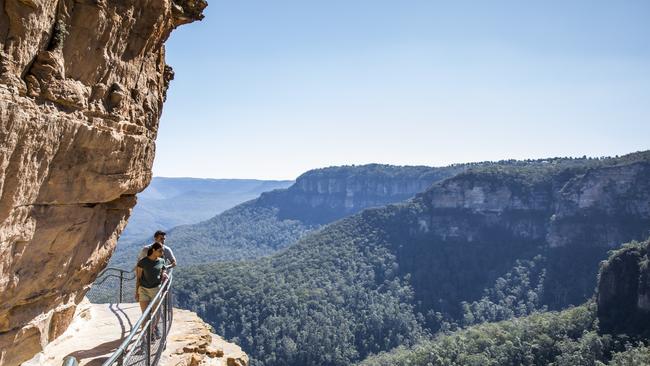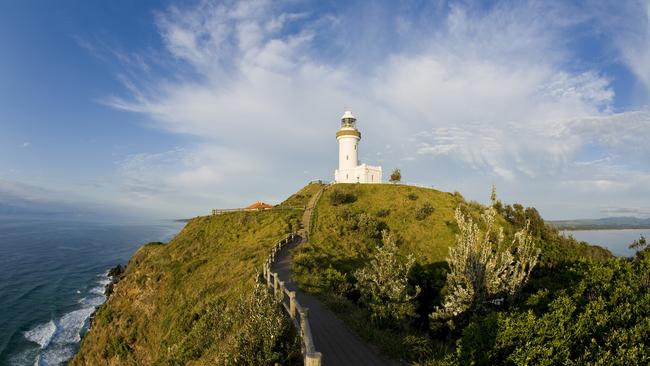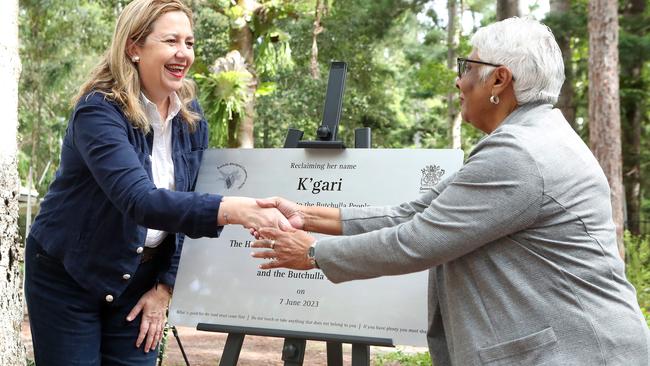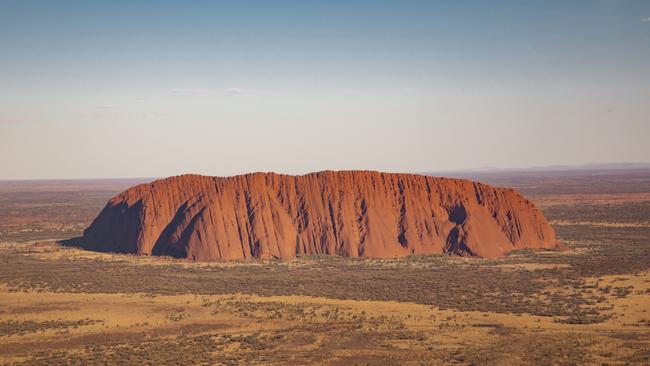Blue Mountains could soon be officially known by Indigenous name
NSW is considering a proposal to have a popular tourist destination formally known by its traditional Aboriginal name.
A section of NSW’s Blue Mountains could soon be formally known by its indigenous name as more Australian places are officially recognised by traditional names.
This week the NSW Geographical Names Board will consider whether a section of the Blue Mountains should get a dual name and have “Gulu-mada” officially attached to it.
The tourist spot, about 1.5 hours from Sydney, is known for its natural beauty and being a great area for outdoor adventure activities.
The board will decide if the name change proposal will be put to the community for feedback, which is the next step in the renaming process.
However, news.com.au understands it could take weeks to come to this decision. At that point, more information will be provided.

Other name change proposals in the state, which are currently open for public comment, include two of Byron Bay’s most famous landmarks.
The headland of Cape Byron, home to the town’s famous lighthouse, could be officially named Walgun, and Julian Rocks could be formally known as Nguthungulli.
The National Parks and Wildlife Service has submitted dual-name proposals, which means the traditional Aboriginal names sit side-by-side with existing European names.
According to the official website of the NSW Geographical Names Board, the government has supported a dual naming policy for geographical features and cultural sites since 2001.
“The Board is committed to the preservation and promotion of Aboriginal languages and acknowledging Aboriginal culture through place naming in NSW,” a statement said.
“The Board does this by preferencing traditional Aboriginal place names or names with Aboriginal origin wherever it can and restoring traditional Aboriginal names to features with introduced names through its dual naming policy and recognising important traditional Aboriginal placenames alongside longstanding introduced names.”

These proposals for Byron Bay were put out for public consultation just weeks after the Queensland Government changed the name of Fraser Island to K’gari on June 7.
Queensland Premier Annastacia Palaszczuk formally reinstated the name used by the island’s traditional owners for at least 60,000 years.
“K’gari comes from the Butchulla people’s creation story of the island, which has been passed down orally for generations,” she said.
“I’m proud that today we can officially welcome K’gari home, and reinstate the name used by traditional owners for all these years.”

While governments are making such moves to acknowledge Aboriginal languages and culture, the changes have not come without backlash.
Many people took to social media to share their rejection of the name K’gari.
Both Ayers Rock and the misspelt “Ayres Rock” trended on Twitter in Australia as critics declared they would not stop referring to the island as Fraser Island, just as they had not stopped saying Ayers Rock.
The Ayers Rock-Uluru name change of the ‘90s is arguably the most well-known.
Uluru was named Ayers Rock in 1873 by a British explorer and in 1993, the rock was officially renamed Ayers Rock / Uluru.
In 2002, the names were reversed to Uluru / Ayers Rock and either name is fine to use according Parks Australia, which uses the original name, Uluru.

After the Fraser Island name change, Ms Palaszczuk had to shut down rumours she was planning to change the name of Brisbane to its traditional equivalent, “Meanjin”, before the 2032 Olympics.
But before the Premier declared it was “absolute nonsense”, the rumoured plan was already being debated.
One Nation Senator Pauline Hanson slammed the idea as “insane” and “ridiculous”.
“How insane is this, to actually want to change the name of Brisbane, that’s been called Brisbane for what, 150 years plus,” she told Sky News.
“And generations have grown up under Brisbane. All our birth certificates, marriage certificates, where were we born? Brisbane, Australia. All our tourism — people overseas know it as Brisbane. And we’re going to change it to a name that — I can’t even remember what you said, within matter of a few seconds — I can’t remember. And I have no intentions of actually wanting to remember. So the fact is, to me it will be Brisbane.”
Former Queensland Senator and Sky News host Amanda Stoker claimed there was “very little to be achieved” by renaming things their indigenous equivalents.
Stoker, the former Assistant Attorney-General who was responsible for native title claims in her portfolio, said reconciliation should be about “walking forward together” and doing “practical things” that actually “make a difference” for people.
“And we need to really lay off the virtue signalling,” she said.



